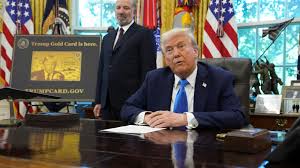On September 15, China’s antimonopoly regulator announced that Nvidia, the world’s largest designer of advanced computer chips, infringed the country’s antitrust law.
To elaborate, antitrust laws are legal frameworks that prevent companies from making illegal mergers or business practices. Nvidia, now facing an inspection from China, is going to be under the investigation of Beijing for breaking these boundaries as the competition over this technological supremacy intensifies.
Nvidia has long been recognized as the global leader in the chip industry. The advancement of Nvidia’s computer chips, which are used to power artificial intelligence and other high-performing computing systems, has increased the demand for their supply globally. However, due to its rapid advancement, Nvidia is stuck between a heated tension between the U.S. and China as they battle over who will lead in the development of artificial intelligence.
According to Investopedia, after imposing restrictions on trade, President Donald Trump allowed Nvidia to sell H2O chips to China for a 15% share of revenues. This contradicted the previous trade restrictions established by the Trump administration, which limited the American chip trade with China. While these exceptions offered temporary relief for Nvidia’s business, they also exposed the company to heightened scrutiny from Chinese regulators eager to curb foreign dominance in this technological battle.
However, the current investigation by China’s State Administration for Market Regulation (SAMR) is not entirely without precedent. In 2020, Nvidia purchased an Israeli company known for its fast interconnect solutions called Mellanox, and last year SAMR completed a thorough investigation into this purchase. At that time, this $7 billion deal was cleared by China, though it came with certain regulations. According to Long Bridge, the regulations include: no forced bundling or unreasonable trading conditions, customers must be free to purchase or use each product separately, no discrimination, continued supply obligations to China, maintaining interoperability, and maintaining open-source commitments. It was also stated that SAMR has the right to supervise compliance and take enforcement action under the antitrust law if the obligations are not met. Currently, SAMR claims that Nvidia violated those earlier commitments, but has not disclosed the exact reasons to why it believes Nvidia broke the antitrust law.
“We comply with the law in all respects,” a Nvidia spokesperson stated to The Associated Press, rejecting this accusation. “We will continue to cooperate with all relevant government agencies as they evaluate the impact of export controls on competition in the commercial markets.”
The company’s stance reflects both its confidence in adhering to international regulations and its cautious approach to avoid escalating tensions with one of its most important markets.
As the investigation unfolds, analysts suggest that the outcome could have far-reaching implications for both Nvidia. If regulators in China decide to impose penalties on Nvidia, they may shift their partnerships elsewhere, further fragmenting this global technology landscape. Along with that, the U.S. added 23 new Chinese firms to its export blacklist, causing Nvidia’s stock to drop 2.6% due to the Cyberspace Administration of China’s ban on buying Nvidia’s chips, according to Yahoo Finance. The ongoing scrutiny of Nvidia by Chinese regulators, combined with rising trade tensions and national security concerns, highlights the fragile balance global technology companies are required to maintain today.













































































































































